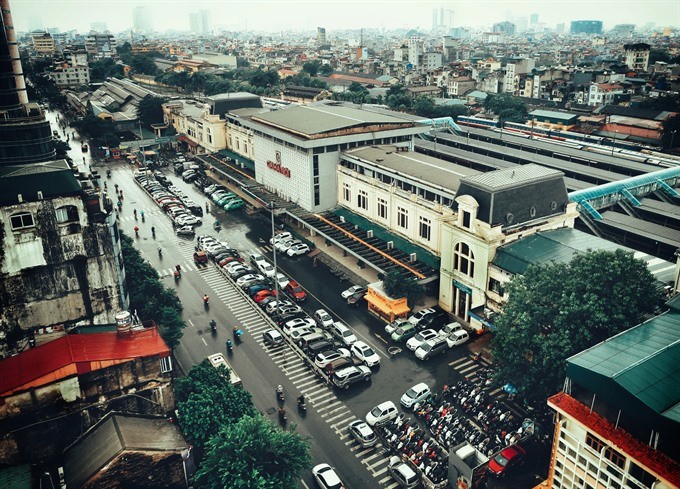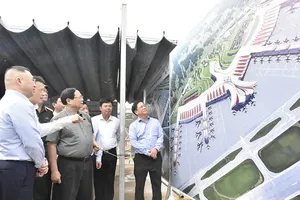
However, the plan has generated opposition from architectural experts, who argue that it would disrupt the city’s planning, affect historical monuments nearby, greatly increase population density and worsen traffic.
The plan calls for six zones of high-rise buildings of between 40 to 70 storeys for financial and media purposes, a railway station, and three areas of low-rise buildings with a park, international trade zone and a new lifestyle zone.
The project will cover a total area of 98ha in the districts of Dong Da, Hoan Kiem, Ba Dinh and Hai Ba Trung. Total investment capital is estimated at VND 23.8 trillion (US$1.01 trillion).
The project was prepared by the city’s Department of Planning and Architecture in consultation with Japan’s Nikken Sekkei Civil Engineering Ltd (NSC).
Le Vinh, director of the municipal Department of Planning and Architecture, said the station is currently surrounded by low-rise houses with low-quality traffic and water drainage infrastructure, causing serious traffic congestion and environmental pollution.
In addition, the station area is surrounded by dense construction, resulting in a shortage of public spaces and parking lots. The project would rearrange the use of the land, create more urban open space and resettlement, and supplement social and technical infrastructure to serve residents, he said. Road space in the area would increase from 14,88 hectares to 24,72 hectares and underground parking lots would occupy 34.5 hectares of the project’s area.
Opposition
However, many construction experts and architects have raised objections.
Do Viet Chien, former director of the Ministry of Construction’s Department of Urban Development, said the project would increase the population and put pressure on facilities. In addition, commercial centres would attract a large number of people, causing terrible traffic congestion, he explained.
PhD Pham Sy Liem, vice chairman of the Vietnam Construction Association, agreed, saying the station was an important traffic hub linking many key routes of Le Duan, Tran Hung Dao, Ly Thuong Kiet and Hai Ba Trung streets. The 70-storey buildings would worsen the situation.
Liem said Hanoi made an effort to reduce the population in the inner city, not increase it. Hanoi Railway Station has historic significance for the city and the city should consider building a railway station out of the centre and maintain the current station as a historic venue.
Nguyen Ngoc Tien, a researcher, said 80-year-old French-style architecture of the station was an Asian landmark that should be preserved. Moreover, the new railway area would cover a large area and affect dozens of historic monuments nearby, including the ancient Temple of Literature.
The committee is collecting opinions from ministries and sectors before proposing it to the Government.
























